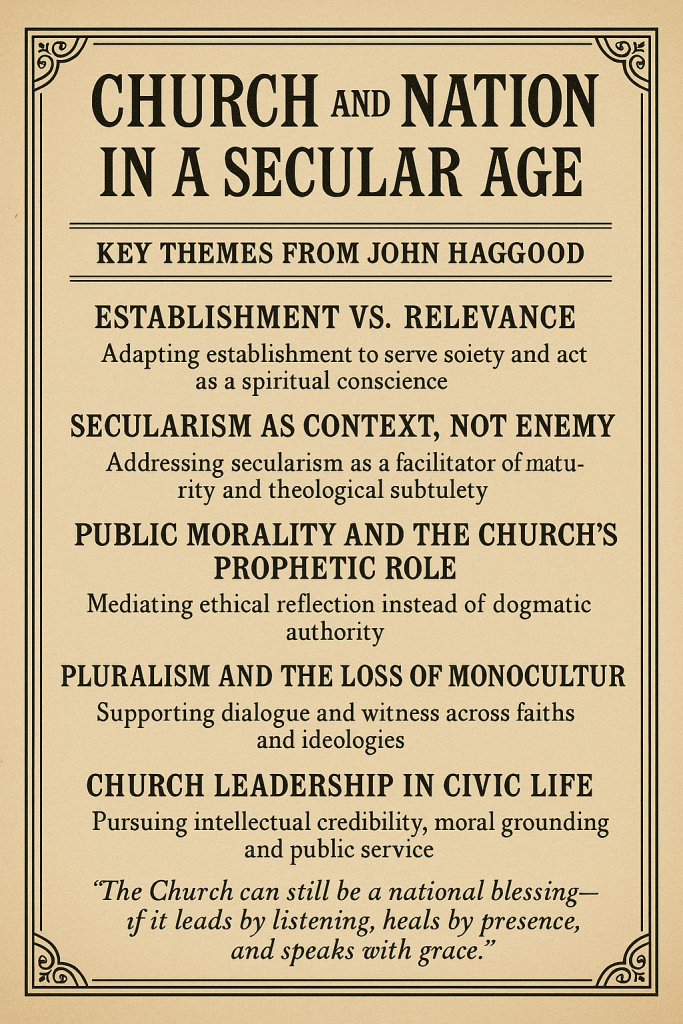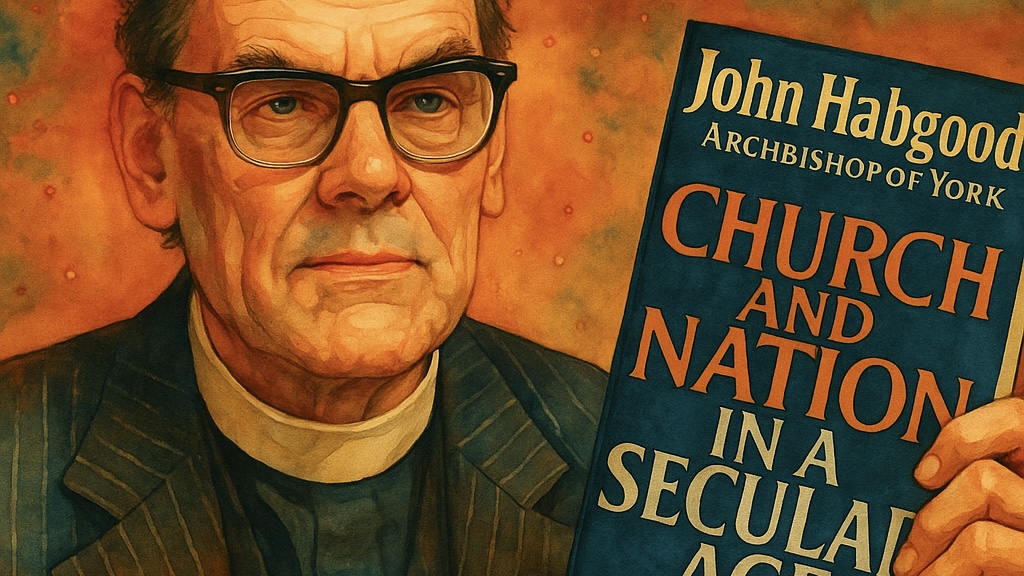It Happened on
November 09, 1983
John Habgood’s Church and Nation in a Secular Age (1983) is a deeply thoughtful work of ecclesiology and public theology, reflecting on how the Church of England—long embedded in the cultural, moral, and institutional DNA of Britain—must adapt to a modern secular society without losing its moral voice or spiritual vitality.

Listen to NotebookLM gossip about this book
Key Themes in Church and Nation in a Secular Age
Establishment vs. Relevance
Habgood confronts the tension between the established status of the Church of England and the pluralistic, post-Christian society it inhabits. He does not argue for disestablishment, but rather suggests that establishment must evolve:
It should become less about privilege and more about service and representation.
The Church should act as a spiritual conscience of the nation, not as a governing arm.
He invites a model where establishment is based on influence through integrity, rather than on legal entanglement.
Secularism as Context, Not Enemy
Habgood does not treat secularism as a purely negative force. Instead, he sees it as a development in Western moral maturity—one that:
Recognizes the autonomy of reason and science,
Protects freedom of conscience,
And demands greater theological subtlety from churches.
Rather than trying to “re-Christianize” culture, the Church must learn to speak fluently in a secular context.
Public Morality and the Church’s Prophetic Role
In an age where traditional Christian norms no longer hold universal sway, the Church still has a vital role in shaping moral discourse. Habgood suggests:
The Church must act as a mediator of public ethical reflection, not a dogmatic authority.
Christianity offers a narrative framework, not a coercive rulebook.
This echoes Tillich’s “theonomous ethics”—where secular morality and divine meaning coexist, without domination.
Pluralism and the Loss of Monoculture
Habgood sees pluralism not as a problem to solve, but as a new condition of ministry:
Christianity must make peace with coexisting faiths and ideologies.
The Church should support dialogue over dogma, witness over warfare.
His vision is more Incarnational than Imperial—more “God-with-us” than “God-over-you.”
Church Leadership in Civic Life
As both a scientist and a bishop, Habgood calls for leaders who are:
Intellectually credible in secular disciplines,
Morally grounded in spiritual tradition,
Pastorally attentive to human suffering.
He believes Christian leadership should lean into humility, dialogue, and public service—not nostalgia for lost Christendom.
Style and Audience
The book is written in measured, lucid prose, with the kind of intellectual generosity that invites conversation. It was intended for:
Clergy facing institutional change,
Policy-makers curious about religion’s public role,
And thoughtful Christians navigating a pluralistic world.
Why It Still Matters
Habgood’s prophetic instincts seem even more relevant today:
As nationalism and religious identity politicize faith,
As churches wrestle with declining public influence,
And as young people seek spiritual depth without institutional baggage.
His central message?
🕊 The Church can still be a national blessing—if it leads by listening, heals by presence, and speaks with grace.
